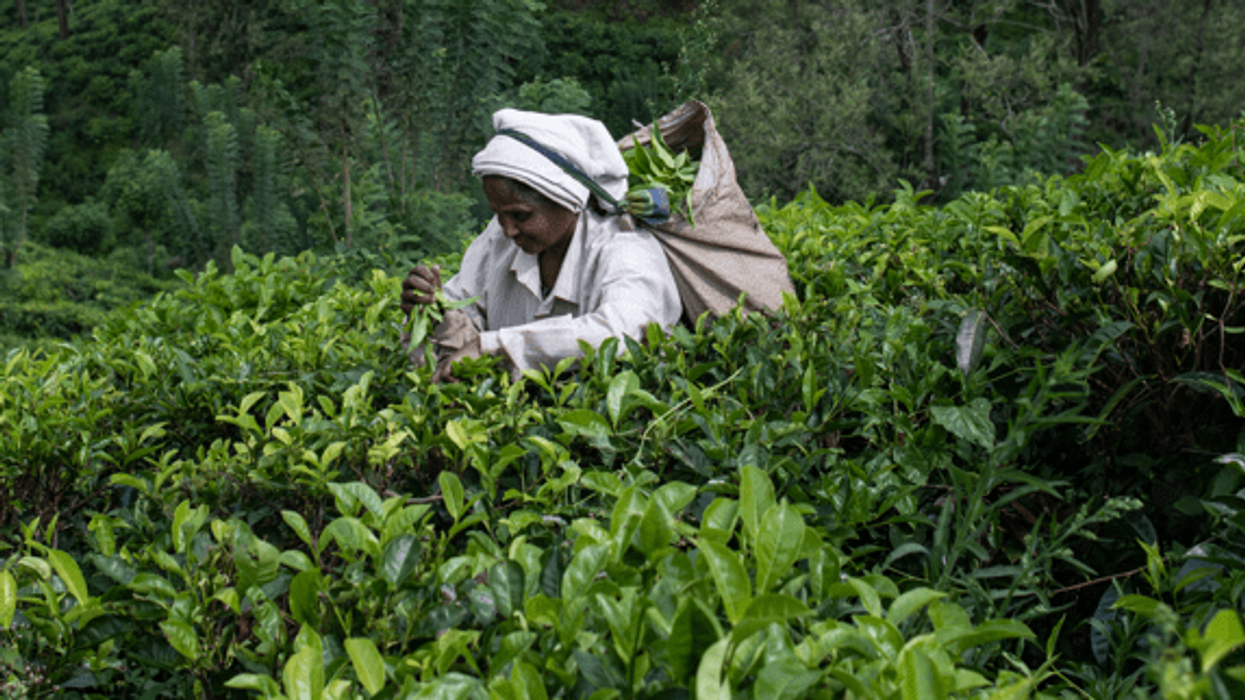In a sign of confidence that the worst of Sri Lanka’s financial crisis is over, its central bank surprised markets by cutting interest rates for the first time in three years last Thursday (1), signalling a change of course to fuel a rebound in the economy.
The country plunged into crisis last year as its foreign exchange reserves ran out, food and energy prices spiralled and protesting mobs forced the ouster of the country’s then president.
President Ranil Wickremesinghe, who took the reins in July, had negotiated a $2.9 billion (£2.34bn) bailout from the International Monetary Fund (IMF) in March.
In an address to the nation last Thursday, Wickremesinghe said Sri Lanka will work to cut government spending, boost foreign investment and create jobs as the country seeks to return to growth.
“The country’s economy is gradually recovering from the crisis, thanks to correct policies including the collective efforts of the people,” he said.
Wickremsinghe outlined multiple reform measures including increasing exports, attracting international investors and restructuring loss-making state enterprises to put public finances in order and return the country to growth.
Kenji Okamura, the IMF deputy managing director, said last Thursday at the conclusion of his visit to Colombo the country was showing a “strong commitment” to implementing economic reforms, but it must continue this momentum even in a challenging economic environment.
Inflation, which hit a record high of around 70 per cent in September, is falling, government revenues are looking up and pressure on the country’s balance of payments is easing.
The government aims to complete talks to restructure its bilateral debt with other countries by September.
“This can possibly be seen as an end to the crisis,” said Sanjeewa Fernando, a senior vice-president at Asia Securities in Colombo.
The Central Bank of Sri Lanka (CBSL) cut its standing deposit facility rate and standing lending facility rate by 250 basis points to 13 per cent and 14 per cent, respectively, from 15.5 per cent and 16.5 per cent.
The CBSL said the big rate cut would “help steer the economy towards a rebound phase”. The central bank governor, P Nandalal Weerasinghe, said the economy “was getting back to normalcy”.
“Coming out of the crisis is gradual,” he told reporters. “Cannot say yesterday, day before or tomorrow. It is a gradual recovery process.”
But while inflation has come down, it remains steep. The IMF expects gross domestic product to contract three per cent this year after a 7.8 per cent contraction last year.
The CBSL has forecast a two per cent contraction in 2023, and Weerasinghe said the bank expects the economy to grow from the third quarter onward after a small contraction in the second quarter.
“Hopefully banks will gradually expand their loan books and credit will start flowing into businesses and with that the economy will start to recover,” Weerasinghe said.
The IMF has set Sri Lanka an inflation target of 15.2 per cent for this year, but the CBSL is eyeing a more ambitious target of single-digit inflation by September that was clearly within reach, Weerasinghe said.
“Headline inflation is forecast to reach single-digit levels in early Q3 2023, and stabilise around mid-single digit levels over the medium term,” the bank said.
The CBSL added that faster deceleration of inflation and the lower probability of demand pressure during the economic rebound “creates space for a gradual policy relaxation in the period ahead”. (Reuters)




